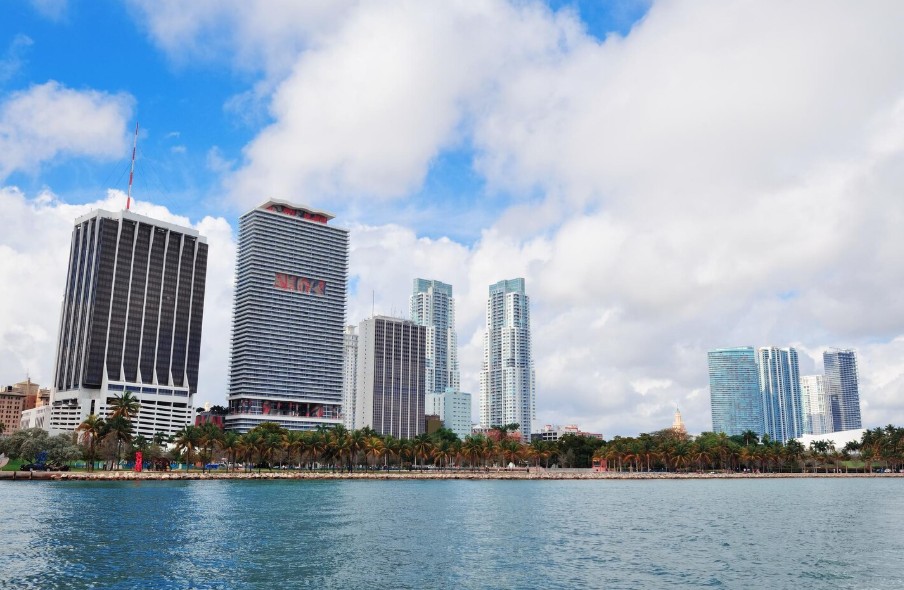Introduction: Why Employment Passes Matter
Malaysia has become a top investment and professional hub in Southeast Asia. With a strategic location, competitive tax regime, and well-developed infrastructure, the country attracts multinational corporations, tech start-ups, and professionals from all over the world.
If you’re planning company incorporation in Malaysia, you’ll typically rely on one of these routes to legally work and hire foreign talent:
- ESD Employment Pass (EP) — administered by the Expatriate Services Division; the default path for most general businesses (trading, consulting, professional services, logistics, finance).
- MDEC Employment Pass — for Malaysia Digital (MD) tech companies and, in some cases, non-ICT companies hiring digital specialists.
- Resident Talent Pass (RP-T) — a 10-year pass for highly skilled professionals already established in Malaysia (covered later).
- Professional Visit Pass (PVP) — short-term assignments (training/secondment) without family relocation benefits (covered later).
Why this matters:
- Paid-up capital and sector licences (e.g., WRT Licence for foreign-owned retail/consultancy) can make or break Employment Pass Malaysia approvals.
- Matching the right agency to your business model (ESD vs MDEC) speeds approvals and prevents costly reworks.
- Salary bracket + seniority + qualifications determine which EP category applies and whether dependents are allowed.
Need personalised advice? Amaze Advisory can structure your incorporation, licensing, and work pass applications for maximum success.
Email salesteam@amazeadvisory.com or call +6013-284 7678 / +6013-323 7678
A. ESD Employment Pass (EP): The most common path
Who it’s for
- Foreign-owned or local Sdn Bhd in general business: trading, services, consulting, finance, logistics, professional services.
- Companies that do not fall under a specialised agency scheme.
EP categories (ESD)
| Category | Monthly Salary | Validity | Typical Roles | Dependants |
| Cat I | RM10,000+ | Up to 5 years | C-suite, directors, senior experts | Allowed |
| Cat II | RM5,000–RM9,999 | Up to 2 years | Managers, experienced specialists | Allowed |
| Cat III | RM3,000–RM4,999 | 1 year (renewable up to 2x) | Junior/technical roles* | Not Allowed |
💡 Pro Tip: Definition of Dependents: spouse, children under 18, disabled child regardless of age
Common pitfalls (and how to avoid them)
- Under-capitalisation
Applying with < RM500,000 (or < RM1,000,000 for WRT) leads to predictable refusals.
Fix: Inject the correct paid-up capital Malaysia before filing. - Missing or wrong licence
100% foreign-owned retail/consultancy without a WRT Licence will stall EPs.
Fix: Secure WRT early or align activities to permissible codes. - Weak role justification
Generic JDs or roles easily filled by locals trigger rejections.
Fix: Emphasise niche expertise, regional scope, technology stack, or transition plan to train locals. - Category III misuse
Using Cat III for roles that belong in Cat II (or in ineligible industries) risks blacklisting.
Fix: Map salary/role/category correctly from the start. - Payroll/tax lapses
Under-declaring salary or missing PCB withholding can derail renewals.
Fix: Sync HR, payroll, and immigration records.
B. MDEC Employment Pass (Malaysia Digital): ICT & Non-ICT Paths (2025)
The MDEC Employment Pass (EP) supports Malaysia’s national digital agenda by helping companies recruit foreign digital talent. It’s administered by Malaysia Digital Economy Corporation (MDEC) and integrated with Immigration via the Xpats Gateway. Final EP issuance is still by the Immigration Department (as an ePASS).
There are two routes under MDEC:
- ICT / Malaysia Digital (MD) companies — firms formally granted MD status.
- Non-ICT companies — traditional industries hiring digital specialists for internal transformation (ERP, cybersecurity, data, automation, AI, cloud).
If your core business is digital (software, cloud, AI, fintech, e-commerce), aim for MD status. If you’re a non-ICT company hiring digital talent (e.g., a logistics group onboarding a CTO), you can apply via MDEC without MD status, but justification is stricter.
Who qualifies under MDEC?
i) ICT / MD-Status Companies
- Core activities: Software development, SaaS, cloud/DevOps, data analytics/AI/ML, cybersecurity, fintech/blockchain, IoT/industry 4.0, data centres, platform/e-commerce, digital marketing tech.
- Corporate status: Incorporated in Malaysia and awarded MD status by MDEC.
- Typical roles: CTO, Head of Engineering, Solutions Architect, Data Scientist, Cybersecurity Lead, Cloud Engineer, Product Manager (tech), Full-Stack Engineer, DevOps/SRE, ML Engineer.
EP categories (MDEC-MD Status Companies)
| Category | Monthly Salary | Validity | Typical Roles | Dependants |
| Cat I | RM10,000+ | Up to 5 years | C-suite, directors, senior experts | Allowed |
| Cat II | RM5,000–RM9,999 | Up to 2 years | Managers, experienced specialists | Allowed |
| Cat III | RM3,000–RM4,999 | 1 year (renewable up to 2x) | Junior/technical roles* | Allowed |
💡 Pro Tip: Definition of Dependants: spouse, parents/parents in law children under 18, disabled child regardless of age
ii) Non-ICT Companies (Digital Roles)
- Traditional sectors: Manufacturing, logistics, retail, healthcare, professional services, energy, construction, etc.
- Roles must be digital-specific: ERP/CRM Architect, Cybersecurity Officer, Head of Digital Transformation, Data/BI Lead, Automation/IIoT Engineer, Cloud Migration Lead.
- Key hurdle: Prove the role directly enables digital transformation, is not easily filled locally, and aligns to a defined transformation roadmap.
EP categories (MDEC-Non ICT Companies)
| Category | Monthly Salary | Validity | Typical Roles | Dependants |
| Cat I | RM10,000+ | Up to 5 years | C-suite, directors, senior experts | Allowed |
| Cat II | RM5,000–RM9,999 | Up to 2 years | Managers, experienced specialists | Allowed |
| Cat III | RM3,000–RM4,999 | 1 year (renewable up to 2x) | Junior/technical roles* | Not Allowed |
💡 Pro Tip: Definition of Dependants: spouse, parents/parents in law children under 18, disabled child regardless of age
Role types that tend to be approved (MDEC)
- Architecture & leadership: CTO, Solutions Architect, Head of Digital/AI, Enterprise Architect.
- Security & infrastructure: Cybersecurity Lead, Cloud/DevOps Engineer, SRE, Network Security Architect.
- Data & product: Data Scientist/Engineer, ML Engineer, Product Manager (tech), Analytics Lead.
- Systems & transformation: SAP/Oracle/MS Dynamics Architect, RPA/Automation Lead, IIoT Engineer.
Roles that often trigger rejection
- General sales, marketing, or admin unrelated to core digital transformation.
- Roles without a clear skills gap vs local labour market.
- Vague JDs lacking stack details, responsibilities, or KPIs.
Approval boosters (what strengthens your application)
- Specific tech stack listed in the JD (e.g., “AWS EKS, Terraform, Python, Kafka”).
- Certifications that are scarce locally (CISSP, OSCP, SAP S/4HANA, AWS Pro, Azure Architect).
- Transformation roadmap with milestones and budget (non-ICT).
- Knowledge transfer plan to upskill Malaysian team over 12–24 months.
- Clear linkage between paid-up capital, project pipeline, and headcount plan.
Common pitfalls (and how to avoid them)
- Applying without MD status (ICT firms)
If your core business is digital but you didn’t obtain MD status, your application will stall.
Fix: Secure MD status first; MDEC prioritises verified digital firms. - Insufficient paid-up capital
Foreign-owned companies with < RM500k paid-up capital face near-automatic rejections.
Fix: Inject the correct capital before filing; align with banking and immigration timelines. - Generic job descriptions
“IT Manager” with no stack, no KPIs, no roadmap = high rejection risk.
Fix: Be specific — tools, outcomes, project ownership, measurable deliverables. - No digital roadmap (non-ICT)
Hiring a “Chief Digital Officer” with no budget or plan signals window-dressing.
Fix: Attach an actionable roadmap (ERP/cloud/automation/data) with governance. - Salary mismatch
Internal approvals say RM9,000; contract says RM10,000; portal says RM9,500 — these inconsistencies delay or derail approvals.
Fix: Keep salary and benefits identical across all documents.
📞 Need expert help with your Malaysia Digital Status and Employment Pass Application ? Contact Amaze Advisory at salesteam@amazeadvisory.com or call +6013-284 7678 / +6013-323 7678 for a free consultation.
C. Resident Talent Pass (RP-T): Long-Term Security for Professionals
The Resident Talent Pass (RP-T) is Malaysia’s most prestigious work visa designed to retain highly skilled foreign professionals. Unlike the standard Employment Pass Malaysia, which is tied to a specific employer, the RP-T provides 10 years of work and residence security with full employer mobility. This makes it an excellent option for professionals planning a long-term career or investment in Malaysia.
Who Is It For?
- Foreign professionals who have already worked in Malaysia for at least 3 consecutive years on a valid Employment Pass
- Individuals earning a basic salary of RM15,000 per month or more (excluding allowances/bonuses)
- Senior executives, technology leaders, healthcare professionals, financial specialists, or other highly skilled roles
- Professionals with at least 5 years of total work experience and a recognised academic or professional qualification
Eligibility Criteria
- Current valid Employment Pass with at least 3 months’ validity remaining
- Malaysian income tax file number and proof of tax payments for the last 2 consecutive years
- Degree, diploma, or equivalent professional certification recognised by Malaysian authorities
- Stable employment history demonstrating long-term contribution to Malaysia
Benefits of RP-T
- 10-year renewable pass — far longer than the 1–5 years for regular Employment Passes
- Employer mobility — you are not tied to one company and can change employers without reapplying for a new pass
- Family-friendly relocation — spouses, children, and parents are eligible under dependant passes
- Spouse & children work/study rights — no additional approvals required
- Freedom to invest — RP-T holders are allowed to establish and manage businesses in Malaysia
👉 Pro Tip: The RP-T is the ultimate goal for many expatriates. Plan early by keeping your tax records in order and ensuring your salary meets the minimum threshold.
Common Pitfalls to Avoid with RP-T
Despite its many advantages, applicants frequently face challenges that result in delays or outright rejections:
- Incomplete Tax Records
- Many applicants fail because their Malaysian income tax filings are missing or inconsistent.
- Immigration requires at least two consecutive years of tax filings. Ensure your employer deducts PCB/MTD monthly and file your annual returns correctly.
- Salary Misrepresentation
- The minimum salary of RM15,000 per month applies only to the basic salary. Some employers incorrectly include allowances or bonuses, leading to rejection.
- Insufficient Employment Pass History
- You must have worked at least 3 years in Malaysia on a valid EP. Applicants with breaks or short-term Professional Visit Passes often don’t qualify.
- Weak Supporting Documentation
- Missing payslips, EA forms, or incomplete CVs delay approvals. TalentCorp requires detailed proof of your work history and current professional standing.
- Late Submission Before EP Expiry
- If your existing EP has less than 3 months’ validity left, you risk rejection. Apply early to avoid falling below the threshold.
- DIY Applications Without Guidance
- The RP-T must be self-applied via TalentCorp (no agents allowed). However, many professionals attempt the process without consulting advisors, leading to errors in documentation, inconsistent tax records, and delayed outcomes.
D. Professional Visit Pass (PVP): Short-Term Assignments
The Professional Visit Pass (PVP) is a short-term work visa designed for foreign professionals who need to work in Malaysia on a temporary basis. Unlike the Employment Pass Malaysia, which ties an expatriate to a local employer for 1–5 years, the PVP is meant for assignments, training, and secondments of up to 12 months.
This makes it an excellent option for multinational companies, foreign contractors, consultants, trainers, and specialists who need to carry out short-term projects in Malaysia without committing to long-term employment.
Who Is It For?
The PVP is ideal for:
- Foreign professionals seconded from overseas companies to a Malaysian subsidiary, joint venture, or partner.
- Consultants and technical experts entering Malaysia to advise or train local staff.
- Installers, service engineers, and contractors handling project-based work (e.g., machinery installation, IT system rollout).
- Visiting academics, researchers, and lecturers engaged for short-term teaching or research.
- Volunteers or NGO professionals approved under specific government-linked projects.
Duration & Validity
- Typically valid for 3–12 months, depending on assignment needs.
- Non-renewable beyond 12 months — designed strictly for temporary work.
- Multiple-entry allowed during the validity period.
Key Requirements
To qualify for a Professional Visit Pass, both the individual and the host company must meet certain conditions:
For the Expatriate:
- Valid passport with at least 12–18 months’ validity.
- Letter of assignment or contract from the foreign employer.
- Invitation letter from the Malaysian host company, university, or organisation.
- Relevant professional qualifications, technical certificates, or proof of expertise.
- Clean record (no criminal history or previous visa violations).
For the Host Company in Malaysia:
- Proof of incorporation with SSM Malaysia.
- Paid-up capital that meets sector requirements (e.g., RM500,000 for foreign-owned general business).
- Supporting documents such as tenancy agreements, project contracts, or MOUs with the foreign sending company.
- Justification letter stating why foreign expertise is needed and why no Malaysian can fill the role.
Benefits of the PVP
- Quick approval process compared to long-term Employment Passes.
- Flexibility — suitable for project-based assignments without long-term commitment.
- No change of employer status — expatriates remain employed by the overseas company.
- Lower upfront compliance — compared to EP, the capital injection and licensing scrutiny is lighter (though still reviewed).
Common Pitfalls to Avoid
- Misusing PVP for Permanent Roles
- Some companies misuse the PVP to hire foreigners for full-time roles without going through Employment Pass requirements. Immigration strictly monitors this and can impose blacklisting.
- Incomplete Documentation
- Missing contracts, unclear project scopes, or unsigned letters of assignment often delay approvals.
- Failure to Track Expiry
- Since the PVP cannot be extended beyond 12 months, failing to transition to an Employment Pass can result in overstaying, penalties, or deportation.
- Ignoring Paid-Up Capital Rules
- Even for temporary assignments, the host company must still meet minimum capital thresholds for foreign-owned businesses.
Why Choose Amaze Advisory for Your Employment Pass & Work Visa Applications?
Many businesses underestimate the complexity of Malaysia’s Employment Pass, Resident Talent Pass, and Professional Visit Pass — assuming the process can be handled in-house. In reality, incomplete or poorly prepared submissions often result in costly delays or outright rejections.
At Amaze Advisory, we simplify the entire process with:
- Pre-Application Compliance Checks – Ensuring your paid-up capital and licensing requirements (e.g., WRT, MDEC, MIDA) are in order before submission.
- Professional Documentation Support – Drafting strong assignment contracts, justification letters, and expatriate role descriptions to increase approval success.
- End-to-End Liaison with Immigration – Handling applications directly with authorities to minimise processing time and prevent errors.
- Family Support Services – Assisting with Dependant Pass and Long-Term Visit Pass applications so your family can relocate smoothly.
📞 Need expert help Employment and Work Pass Application ? Contact Amaze Advisory at salesteam@amazeadvisory.com or call +6013-284 7678 / +6013-323 7678 for a free consultation.
Contact Amaze Advisory today and take the first step toward building your business in Malaysia.



